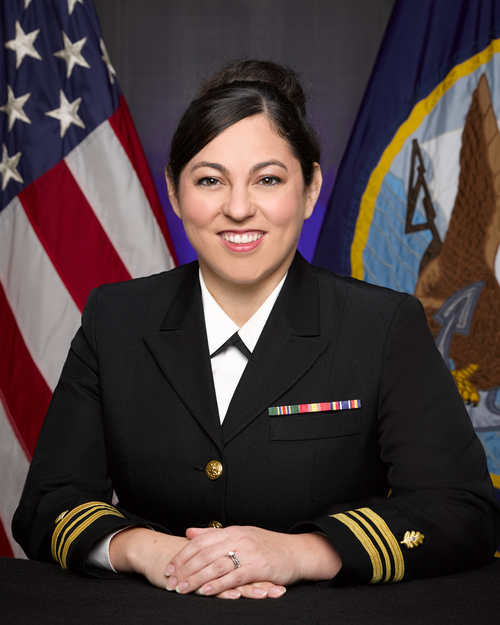A Brem Fellow in the Military
Hydrangeas are blooming along the brick sidewalks, the heavy evening air is stirred by a breeze, the savory scent of a neighbor’s grill wafts past, the charming glow of lightning bugs brighten the night, and herds of tourists crowd the sidewalks … these are the signs of summer in Washington, DC. As the 4th of July approaches and we fire up our grills and pack our picnic baskets, we also reflect on our independence. Not just our country’s independence, but the individual liberties that freedom grants each of us. For many of us, we also think about our military.
I am an active-duty member of the US Navy. I think about our military members and their families every day. More specifically, I think about the breast health of our military and their families. As the Director of the Breast Imaging Center at Walter Reed National Military Medical Center, my job is to ensure that every one of our beneficiaries gets the best breast care.
There is no one size fits all for breast cancer
My training as a Brem Fellow in Breast Imaging and Intervention gave me the tools to deliver exceptional care to our military. One of the most important principles that I learned while working with Dr. Brem is that each patient is unique. There is no “one size fits all” approach to breast cancer. Dr. Brem also taught me is that early detection is key – breast cancer is highly survivable when caught early!
These two key concepts have guided me as I shaped the breast cancer detection program for our military patients and their families. For example, each woman has a unique breast density that not only determines how easily cancer can be detected by a mammogram but is also an independent risk factor for breast cancer. In fact, women with the MOST dense breasts are 4-6 times more likely to develop breast cancer than women with the LEAST dense breasts. And mammograms can be less sensitive for detecting breast cancers in women with very dense breasts.
Automated Whole Breast Ultrasound Screening (ABUS) Program
For these reasons, I am introducing the ABUS program for our military patients with dense breasts. I first learned about this amazing technology as a Brem Fellow at George Washington University. ABUS finds approximately 3-4 additional breast cancers per thousand women screened. Adding an ABUS screening to a mammogram can increase the chances of finding early, curable breast cancer in women with dense breasts. Whereas, a typical mammogram screening program finds about 3-5 breast cancers per thousand women screened. So, ask your radiologist about your breast density and about the best way to detect breast cancer for you.
This is just one example of how the Brem Fellowship and Dr. Brem equipped me to maximize the chances of military women finding early, curable breast cancers. I am so grateful for the knowledge and skill the Brem Foundation has given me. It is with pride and pleasure that I use these gifts to care for our military – as unique, special individuals. So, before you head out to see the fireworks on the Fourth, reflect on the independence we are all afforded in managing our health care and on managing one’s individual health with the best tools available.
Photo by Online Marketing on Unsplash

About Dr. Denise Thigpen
Dr. Denise Thigpen is from Austin, TX. She earned her undergraduate degree in Bioengineering at Rice University with a concentration in Cellular and Molecular Engineering. In 2007, she earned her M.D. at the University of Texas Health Science Center. She completed her internship and radiology residency at the National Capital Consortium. She served at Walter Reed as a general radiologist and ultrasound division officer before being selected as a Brem Fellow. Dr. Thigpen is devoted to the early detection and advanced treatment of breast cancer. She fosters a team approach and individualized breast cancer screening to ensure the most advanced medical care for her patients. She lives in Washington, D.C. with her husband, Jared, and their two children.



